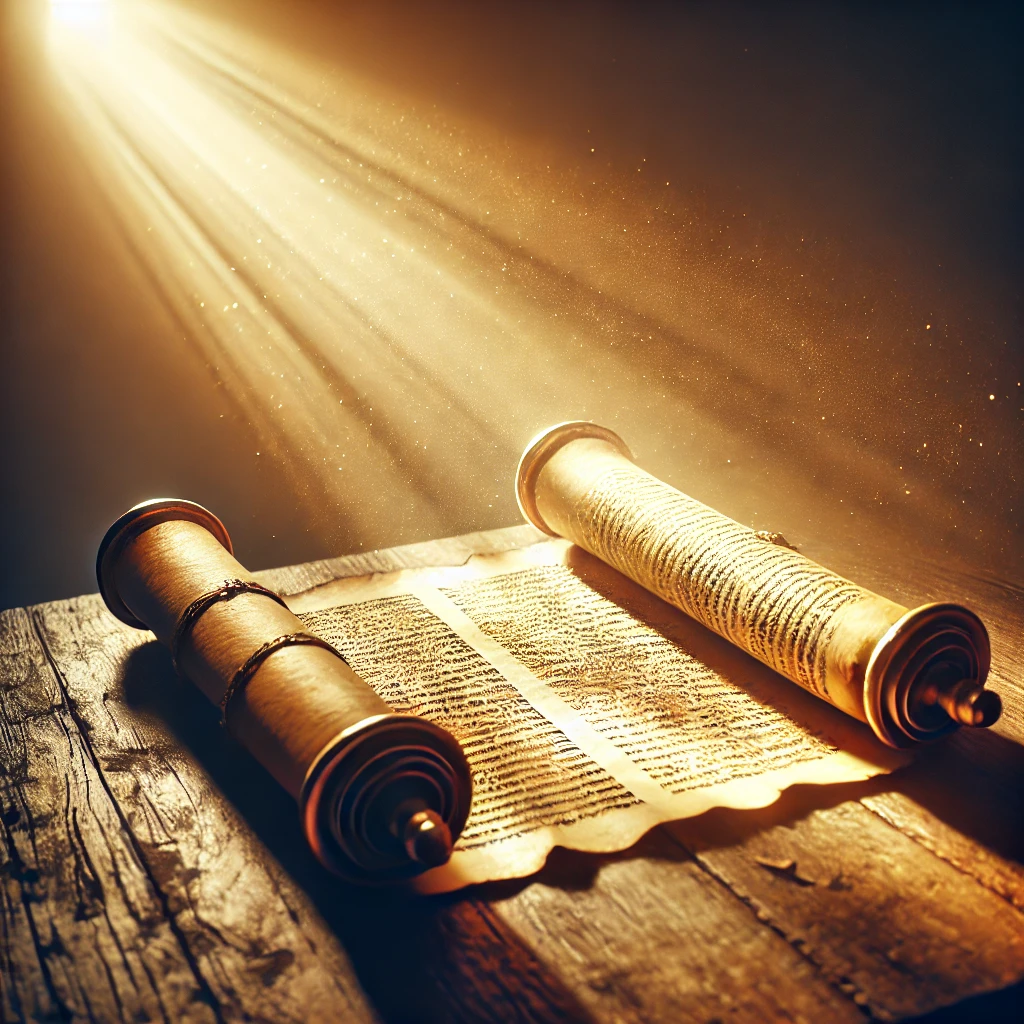This lecture goes with Precept Study on Hebrews Part 2 Lecture 7
"Like apples of gold in settings of silver
is a word spoken in right circumstances."
--Proverbs 25:11
I. Introduction to Hebrews 6:9-7:28 - Review of Context, Flow of Thought
A. Hebrews 5 - The subject of the supremacy of the high priesthood of Jesus according to order of Melchizedek
B. Digression from main subject - Heb 5:11-6:201. Exhortation to believers who had become "dull of hearing" and were immature spiritually (Heb 5:11-6:3)
2. Warning to those who fall away (Heb 6:4-6:8)
3. Encouragement to believers to imitate the faith and patience of Abraham to inherit the promises of God (Heb 6:9-20)C. Return to subject of Melchizedek showing the high priesthood of Jesus was superior to Aaronic priesthood (Heb 7-8)
II. A Word of Encouragement to the Hebrews
1. A Commendation that Relieves Them - Heb 6:9-10
a. "But, beloved, we are convinced of better things concerning you, and things that accompany salvation..."
b. Condemnation versus conviction:i. Condemnation falls upon the unsaved (Heb 10:39, 3:19, 4:11)
ii. Conviction comes upon the saved, "born again" of the seed of God (1 John 3:9; Ro 8:1,15; Gal 4:6; Eph 1:5)c. Conclusion - It is impossible for a true believer to lose his salvation because the living God dwells within him and bears this evidence in his life: Work, love, ministry to the saints (Heb 6:10)
Q: "When does a church become a church?"
A: When pure agape, serving love appears between the believers.2. A Challenge that Revives Them - Heb 6:11-12
a. "Show the same diligence so as to realize the full assurance of hope until the end" (Hebrews 6:11)
1. end = end of goal. Good news: There will be an end to the current distress!
2. 1 Peter 4:7 - "The end of all things is at hand" (ultimate and immediate end implied).
3. Wayne's story: "the plane is in the air" illustrates that the end is "in the air" on the way.
4. Application: We are going to make it, so hold on, until the end!b. Don't be "sluggish, but imitators of those who through faith and patience inherit God's promises." (Heb 6:12)
1. Example of Abraham (Heb 6:13-15):
- He heard the promise from God - blessing, descendants
- He passed the test - sacrifice of Isaac (Genesis 22:1-24+)
- He waited patiently and obtained the promise.
2. Application:
- God promises we will endure.
- He tests/proves our faith through the trials of life.
- He fulfills His promises. - Wayne's example of God's promises to him in his early days at Woodlawn Baptist in Chattanooga.
3. Personal application: What truth has God revealed to you in His Word that is applicable to a trial in your life?
- In a trial are you a "figurer," "feeler," or "faith-er?"
3. A Certainty that Reassures Them (Heb 6:16-18 - "two unchangeable things")
1. The word/promise of God
2. The oath of God4. A Consolation that Refocuses Them (Heb 6:16-18)
1. Hope that anchors the soul
2. Jesus, who has entered within the veil as our forerunner
III. Return to the Subject of Melchizedek, Prefigure of Christ (Heb 7:1-10)
A. Melchizedek - What is known about Him? Who is he?
- King of Salem, "King of Peace";
- Priest of the Most High God
- Name means "King of Righteousness";
- Without father, without mother, without genealogy (recorded)
- Having neither beginning of days nor end of life (recorded)
- But made like the Son of God
- Abides a priest perpetually
- Blessed Abraham, received tithes of spoils from Abraham/Levi (See Gen 14:17-24)
B. Who does Melchizedek point to, or foreshadow? Jesus
Q: What is the author of Hebrews really talking about in context?
A: The supremacy of the priesthood of Jesus (order of Melchizedek) over the Aaronic priesthoodC. Law of Interpretation
The silence of Scripture is just as important as what it says. Wayne believes Melchizedek was not a pre-incarnate appearance of Christ, but a normal, albeit great man, from a kingly dynasty, who foreshadowed Jesus as King and Priest (See Ge 14:18-20+ and Ps 110:4).
IV. The Superiority of the Priesthood of Jesus compared with the Levitical Priesthood (Heb 7:11-28)
A. Perfection deals with gaining access to God (Heb 7:11, 19, 25)
1. Perfection/access to God was not through the Levitical priesthood, through which people received the Law (Heb 7:11)
2. So it was necessary for another priest to arise according to the order of Melchizedek (Heb 7:11)B. Change of priesthood requires a change of law. (Hebrews 7:13)
The Old Covenant of the Law was temporary, came through Moses.
The New Covenant of Grace is eternal, comes through Jesus.C. Old Covenant of Law has been set aside because of weakness and uselessness (can make nothing perfect) (Hebrews 7:18-19, 28)
D. Jesus is high priest and guarantee of a better covenant (Hebrews 7:22-28)
He is not a mere man, weak like priests under the Law, but the Son of God, made perfect forever (Hebrews 7:28).
V. Conclusion and Application
"Temple worshippers" (i.e., have joined the church, but not Christ) cling to human priests/pastors.
True worshippers cling to Jesus, their great high priest who has passed through the heavens. They don't have to have the pastor with them in every trial or problem they have.
